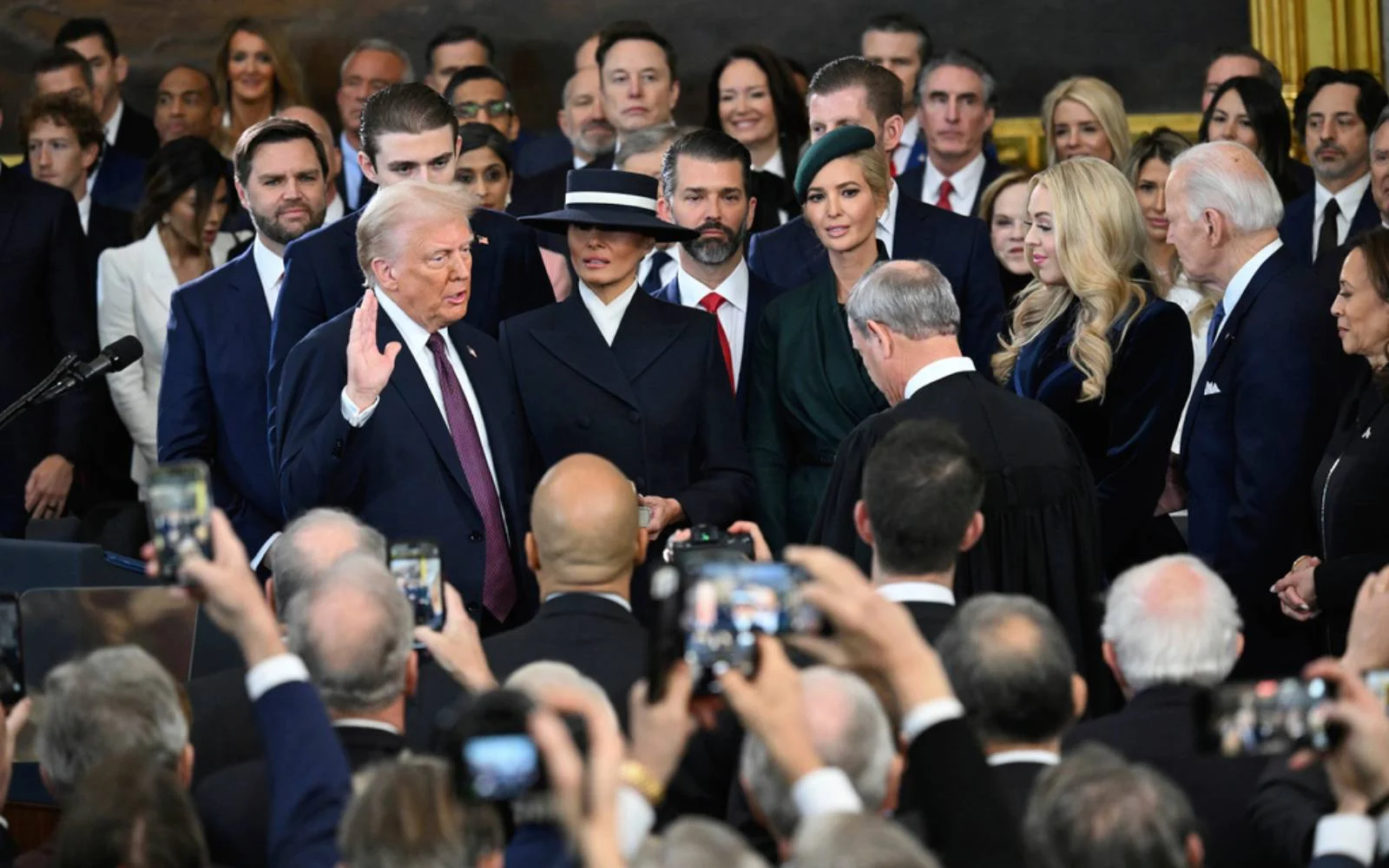Anjali Katta is a student at Harvard Law School.
In today’s news and commentary, President Trump’s first moves in office and EEOC’s discrimination lawsuit against Stellantis.
President Trump has wasted no time in taking action to fulfill many of his campaign promises. On day one, President Trump has made plans to revoke nearly 80 executive orders signed by former President Biden, implement a federal hiring freeze, and enact a return-to-office order for government workers. President Trump also announced plans to impose a 25% tariff on goods from Mexico and Canada by February 1st, although he has postponed any immediate tariffs on China. Researchers have warned that tariffs could raise prices and harm U.S. workers.
President Trump has also signed a series of executive orders limiting both legal and illegal immigration. These measures include declaring a national emergency at the southern border, ending birthright citizenship for children born on U.S. soil to non-legal immigrants or legal immigrants on temporary visas (such as student or work visas), and suspending refugee resettlement for six months. President Trump has also shut down the CBP One app, an tool implemented by the Biden administration that many migrants used to legally enter the U.S. In addition to humanitarian concerns and the costs required to enact a mass deportation program, experts warn that deportation may cause lasting economic consequences, including increases in prices and poorer economic outcomes for US-born workers.
Meanwhile, the EEOC has filed a lawsuit against auto manufacturer Stellantis, alleging that the company violated Title VII of the Civil Rights Act, which prohibits discrimination based on sex. The lawsuit alleges that female employees at Stellantis’ Detroit assembly complex were sexually harassed by male supervisors and coworkers. It further claims that when the women reported the harassment, the company either failed to respond or did so inadequately. Stellantis has yet to comment on the lawsuit.






Daily News & Commentary
Start your day with our roundup of the latest labor developments. See all
March 2
Block lays off over 4,000 workers; H-1B fee data is revealed.
March 1
The NLRB officially rescinds the Biden-era standard for determining joint-employer status; the DOL proposes a rule that would rescind the Biden-era standard for determining independent contractor status; and Walmart pays $100 million for deceiving delivery drivers regarding wages and tips.
February 27
The Ninth Circuit allows Trump to dismantle certain government unions based on national security concerns; and the DOL set to focus enforcement on firms with “outsized market power.”
February 26
Workplace AI regulations proposed in Michigan; en banc D.C. Circuit hears oral argument in CFPB case; white police officers sue Philadelphia over DEI policy.
February 25
OSHA workplace inspections significantly drop in 2025; the Court denies a petition for certiorari to review a Minnesota law banning mandatory anti-union meetings at work; and the Court declines two petitions to determine whether Air Force service members should receive backpay as a result of religious challenges to the now-revoked COVID-19 vaccine mandate.
February 24
In today’s news and commentary, the NLRB uses the Obama-era Browning-Ferris standard, a fired National Park ranger sues the Department of Interior and the National Park Service, the NLRB closes out Amazon’s labor dispute on Staten Island, and OIRA signals changes to the Biden-era independent contractor rule. The NLRB ruled that Browning-Ferris Industries jointly employed […]